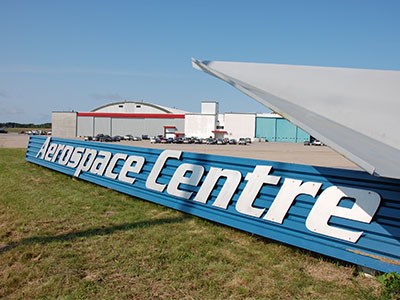Sudbury is lagging behind other northeastern Ontario cities when it comes to attracting new business in the mining supply and services sector, said the executive director of the Sudbury Area Mining Supply and Service Association.
Dick DeStefano said the City of North Bay, in particular, has done more to attract small and medium sized mining businesses through tax incentives and new municipal industrial parks.
He challenged Sudbury's municipal pUndustrial oliticians – both current and upcoming – to develop a strategy to open the city for business.
“What's the political strategy to attract new business?” he asked.
North Bay, he said, reduced its industrial taxes by 66 per cent a few years ago, and eliminated its industrial development charges.
“I think it's one of the tools we keep in our toolbox in terms of remaining competitive,” said Erin Richmond, North Bay's manager of economic development. “We have to always think about different ways we can incent development.”
Last year, the City of North Bay took an extra step to encourage business development, and opened its new 600-acre Airport Industrial Business Park.
So far, four companies – three of which operate in the mining supply and services sector – have taken up residence in the industrial park's southeastern quadrant.
The three mining supply and services companies – Mine Hoist International, Barrie Hard Chrome Plating and Driller's Edge – all had a presence in North Bay, but expanded their operations with the new space.
Driller's Edge, a subsidiary of Edmonton-based Di-Corp, expanded to a 25,000- square-foot building and employs 20 people.
“A large chunk of our time is spent on expansion opportunities and retention for our existing companies,” said Richmond. “It's not often companies just come knocking.”
Ian Wood, Greater Sudbury Development Corporation’s economic development director, said Sudbury has also focused on fostering local businesses.
“More of what we do now is actually working with existing businesses, because most jobs come from existing businesses expanding,” he said.
But the city has taken a different approach than North Bay when it comes to industrial lands.
“For the most part, when it comes to industrial lands, this city decided about seven or eight years ago to focus more on supporting private industrial land opportunities as opposed to embarking on a large new industrial park,” Wood said.
He said council decided at that time it was better to work with existing land owners to develop industrial parcels on their properties rather than spend municipal funds to build industrial parks.
“We're quite confident that if I was to have a knock on my door tomorrow morning, I could accommodate pretty much any opportunity here in Sudbury with the land we have available,” Wood said.
But DeStefano said building on private lands means higher upfront costs for companies, and could encourage some to look at greener – or cheaper – pastures.
“People are going to places that offer a package,” he said. “North Bay is so far ahead of us.”




